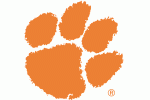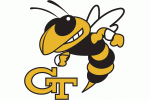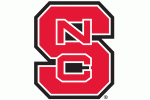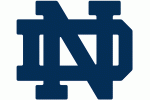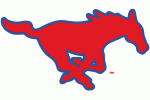The Orange will need to do a better job rebounding the ball in conference to come out on the other side.

The Syracuse Orange opened up ACC play with a win at home against Virginia Tech only to follow that up with a road loss to Wake Forest and then a loss to Notre Dame at home this Saturday. Both losses were frustrating as the Orange were in position to win each of those games but faltered down the stretch.
But perhaps Syracuse could have avoided faltering down the stretch altogether. A myriad of mistakes were made in both the Wake and Notre Dame games, sure. The offense has struggled significantly and might be the number one problem right now.
But in Syracuse’s wins the Orange rebounded the ball well in the non-conference. Against Virginia Tech the Orange won the battle on the glass 39-26. But in Syracuse’s last two games, the inability to rebound the ball against more physical competition has proven costly.
Now, Syracuse is still averaging 40.1 rebounds per game which is good for 35th nationally, but is the metric just fool’s gold?
“We’re not a good rebounding team, that was a myth,” Jim Boeheim opined after Syracuse’s loss on Saturday. “Complete myth. We’ve got guys 180 lbs out there. Nobody has really gone to the boards except the last two games and when they did we cannot rebound down there.”
For the most part, the Syracuse defense has been solid all season. Omitting the Wake game, the Orange has even defended the three a bit better of late. But when you defend well and force missed shots, it’s imperative to rebound those misses.
In Saturday’s loss, Notre Dame grabbed 21 offensive rebounds, 2 more rebounds than what Syracuse had on the defensive end. The Irish turned those 21 offensive rebounds into 16 second chance points, the last play of the game serving as the straw that the broke the camel’s back.
Although the story was somewhat different against Wake, the end result was the same in the win/loss column. Wake grabbed 38 rebounds in the contest, out-boarding the Orange by nine. You don’t have to be among the basketball cognoscenti to understand how rebounding affects the outcome of the game.
So where does the solution lie?
The Orange has to get more production from the inverse forward position from Oshae Brissett. In the last two games, Matt Moyer and Marek Dolezaj have combined for 7 points and 14 rebounds. Whoever plays that forward spot opposite of Oshae has to do a better job rebounding.
The center position, albeit difficult to rebound out of at times, also needs to be better rebounding. Paschal Chukwu is probably logging more minutes than anyone would like him to. That’s not to say he’s played poorly (he hasn’t), but it’s a large burden to shoulder alone.
On a more positive (read: hopeful) note, Bourama Sidibe has played the last two games but doesn’t appear to be 100 percent.
“He made a couple good plays,” Boeheim said of Sidibe. “He’s moving, he feels better. (He) made a couple really good plays. Hopefully he’ll get his legs back under him.”
If Bourama is healthy and Syracuse can get him back up to speed, that should help in both the rebounding and also scoring department.
All things considered, this is not to absolve the guards either. Frank Howard and Tyus Battle have to come in and help crash the glass as well. The Orange force a plethora of long shots within the zone which often translates to long misses.
You can control rebounding better than you can made or missed shots. That will be easier to fix than the offense.
Rebounding is as much if not more about resolve and will as it is about positioning and strength. It has to be a total group effort moving forward.
If there were any doubt before, let there be none. It isn’t the only issue that the team is working through right now but Syracuse will have to rebound the ball better to win games in the ACC.




